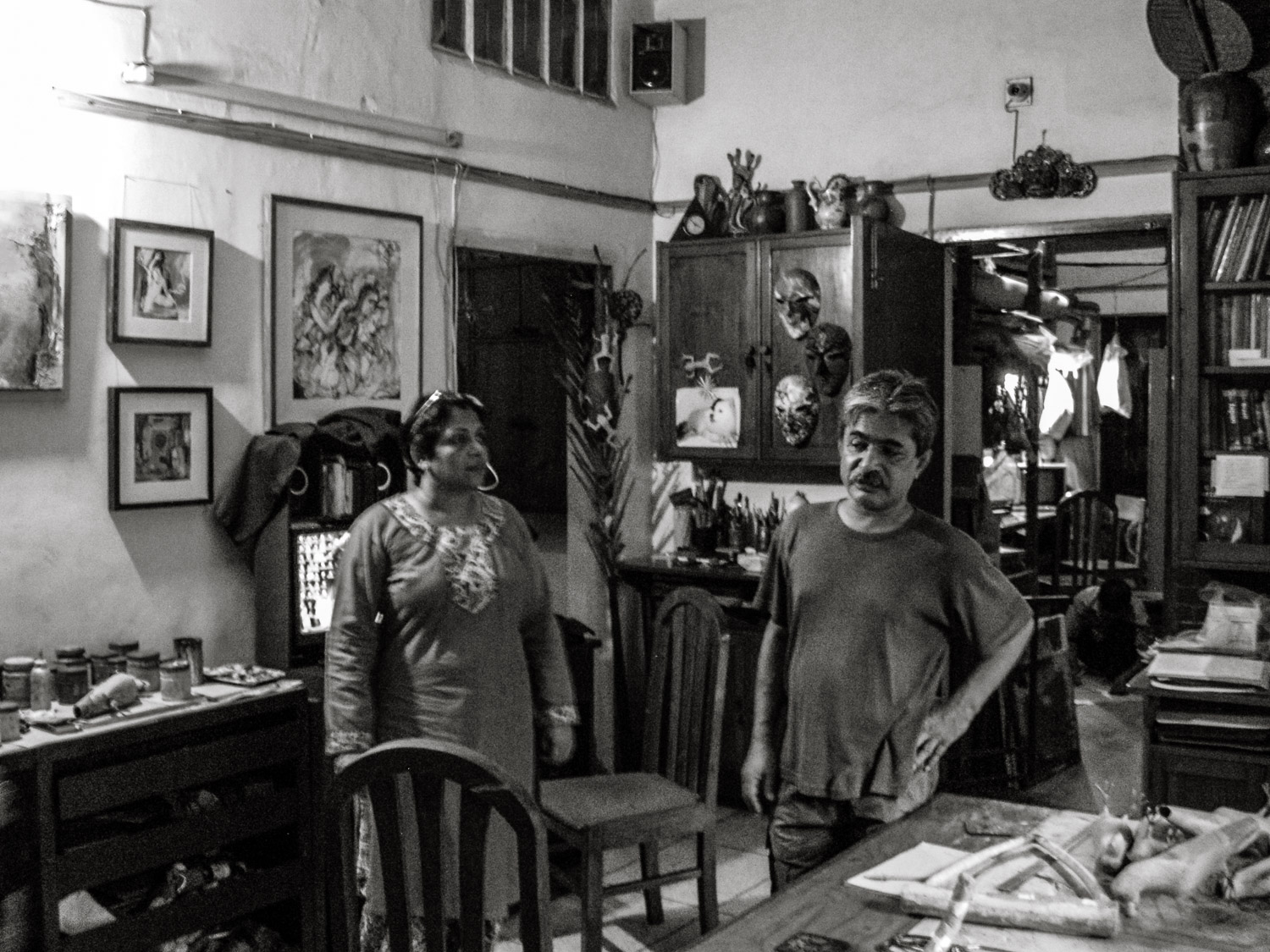Studio Visit with Saidul Haque Juise
Saidul Haque Juise
Sculpture
Saidul Haque Juise's work is a social study of his environment, society, and current political issues. He always has a message for his audience. Sometimes his thoughts appear as protest, sometimes as satire or a subject. Read on to explore his studio and learn more about his practice.
Q.
Tell us about yourself and how you came to be an artist…
A.
I did my first sculpture at the age of eight and it was an inner inspiration. Since then, in my school life, I kept on making sculptures and artworks. Eventually, my parents and I realized that the only thing I can do is art. Hence, on a natural course, I came to the capital city to enroll myself in the only art institute of the country. I felt like I am in the most beloved place in the world. It allowed me to rediscover and redefine myself and the only thing I became is an artist.
Q.
Describe your work in three words:
A.
Expressive, harsh reality, rooted in our origin.
Q.
What is your creative process? Walk us through each stage - from coming up with ideas/themes/concepts you want to explore, to translating that into an artistic vision, to creating the physical artworks and installations.
A.
I try to explore different media and engages in incorporating two or more combinations. My work is not always for a gallery or a residence wall; sometimes I make work for open spaces or street. Open space gives me the freedom of making large things.
I never use expensive material for my works, rather I try to use cheap and easily found materials like paper, bamboo, and sand.
The paper-folding method is very simple. By folding the paper, you can have different shapes which form the main character. The method of paper-folding is simple and can be done with minimal time and expense. Masks express longing, yearning, feeling, pain, happiness and the success of human beings.
Q.
What draws you to masks?
A.
I love to make masks. I make most of my masks from paper, sand, and sawdust. Masks have an intimate relationship with dance and acting, along with various religious customs, rituals, and festivals.
Q.
Where do you draw inspiration from?
A.
Political drama and its harsh impact on humanity is the source of inspiration for my work.
Q.
What messages or emotions do you hope to convey to your audience?
A.
My works are social studies of my environment, society and current political issues. I always have a message for my audience. Sometimes my thoughts appeared as protest, sometimes as satire or a subject.
Q.
What do you listen to when creating?
A.
I listen to subtle Bangla music in the background.










